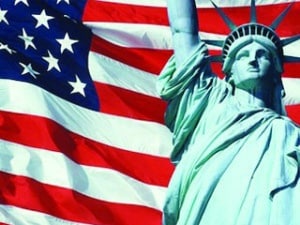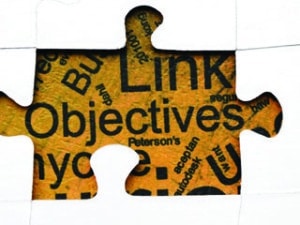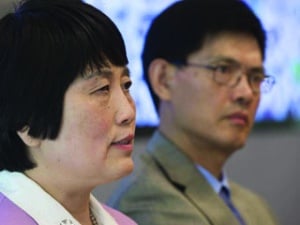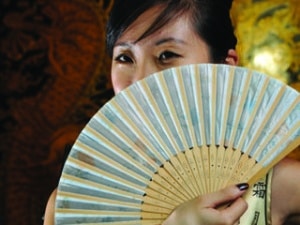
I’m sure many Chinese international students in the US have had this experience before, we are filling in a questionnaire which asks us to provide some basic demographic information, and one of the questions says, “What is your race/ethnicity?” And we are provided with a range of options, including Caucasian/White, African American, Hispanic, Asian American… And we search for the option called “international,” but there is not, so we choose the closest option—Asian American. But we are gnawed by the feeling that this description is only half-true. We are Asian, for sure, but we are not American. We have a Chinese passport and only came to this country a few years ago. We may want to become American one day, but we are not there yet.
America is a country where discourses are structured around race, not nationality; if you are Asian, no matter that you have a Chinese passport, you are considered Asian American. This gives rise to some interesting dilemmas to those of us who are Asian but not American.
If we speak English with an accent, we are considered to be fresh-off-the-boat and holding back the effort of the Asian American to truly integrate into the American society, a reminder that all Asians are immigrants who remain on the fringe of American mainstream culture.
If we speak English too flawlessly, we are assumed to be American, and expected to have all the cultural knowledge—such as references to American pop culture, the political system, regional stereotypes—that comes with growing up in this country, which we don’t.
If we identify ourselves as Asian Americans and join groups and movements in this name, we are considered to have lived in this country for too short to call ourselves “Asian American.” We are considered to be ignorant of the realities of race relations in the US. We grew up in Chinese cities where everyone looks like us; we lack the authentic experience of being a member of an often-marginalized minority group in a white-majority society.

If we do not identify with Asian Americans, we are essentially deprived of all platforms to make our voices heard, because as non-citizens we do not have the vote. The result of this dilemma is that Asian international students tend to form an isolated community of their own without engaging with the broader American society. But we should because everything that happens in American politics affects us as well. For example, we want more sensible immigration policies that allow those of us who graduate from American universities with good records to have an equal opportunity to work in this country for a reasonable amount of time; not the current system where our chances of staying in America is subject to a cruel lottery with a one-in-three winning chance.
When I follow the US presidential elections, the issue that I pay the closest attention to is which candidate has the best policy to help the US retain foreign talents and shift the country’s immigration system from family-based to merit-based. However, nobody has offered any satisfactory, concrete plans on this issue, besides empty rhetoric to the effect of “we need foreign talents.” Politicians can afford to ignore the almost a million international students studying in the US because we don’t have the right to vote. Nobody pays attention to the fact that we may potentially one day become US citizens, and are more than willing to contribute our talents and skills to its economy. The nature of the democratic system is such that candidates cannot afford to be so far-sighted as to cater to those who not yet have the vote.
One of the questions I get asked most frequently (almost on a weekly basis) is: “Do you want to stay in America after graduation?” I’m sure that most international students have gotten so tired of this question that we just throw out a perfunctory “yes” or “no” each time we are asked. The true answer is that we don’t know whether we can, and we don’t know whether we should.
The decision of where to live is affected by so many complex factors that all advance deliberation may turn out to be in vain. Will my most attractive job offer be from an American company, a Chinese company, or American company based in China? Will my US company sponsor my H-1B work visa? Will I win the H-1B lottery? Will I want to attend graduate school? Will China’s economy become so attractive that I have to go back? Will I meet someone living in either country that I want to marry?

But apart from these concerns, there is the question of whether we want to live in a society where it seems we can never become part of the mainstream. I was painfully reminded of this reality while volunteering at the recent Committee of 100 Annual Conference, which featured many luminaries in the Chinese American community across the nation. One of the panels, titled “Economic Espionage: Spies or Stereotypes,” shed light on the US government’s use of racial and national profiling in the prosecution of unlawful technology transfer to China.
Two victims who were wrongly accused of espionage shared their personal ordeals of being forced to respond to crimes that they did not commit. Xiaoxing Xi, a professor of Physics at Temple University, was one day suddenly arrested by FBI agents on the completely unfounded charge that he shared a US company’s technology for making a pocket heater with a Chinese collaborator.
Sherry Chen, a federal hydrologist, was similarly arrested for requesting public available data on the US water management system for an old Chinese classmate. Both emigrated from China to the US decades ago and have long become American citizens. Unable to obtain evidence, the government later dropped all charges against the two, but not before destroying their lives and careers.
During his speech, Prof. Xi said, “Everyone has to be prepared for the day when the FBI agent comes knocking on your door. Like all American citizens, our loyalty to the country shouldn’t be called into question just because of our skin color. Treating citizens unfairly because of geopolitical realities runs counter to our ideals, and is not acceptable.”
An anguished Chen said, “I used to tell people in China about the blue sky and clear stars in America, how the air is always fresh in Ohio. Everything has changed now. The sky is not blue. Where are the stars? Why I couldn’t even breathe? Economic espionage from China may be real, but the government cannot target innocent Chinese Americans. We are not spies; we are loyal Chinese Americans. We have made the country better and stronger.”
When I heard these heartbreaking words—uttered by two tearful speakers—I could not help tearing up as well. It reminded me of what motivated me to come to this country in the first place. When I was self-learning English in China in middle school, I printed out the full text of Dr. Martin Luther King Jr.’s “I Have a Dream” and committed the whole thing to memory, because it reminded me of things that America has but China doesn’t: freedom of speech, equality for all, and the right to protest when these principles are violated.

The first thought that crossed my mind when I saw Prof. Xi and Sherry Chen was that they look just like my dad and mom. Had my parents—who both work in the sciences—chosen to immigrate to America in their twenties, this could have happened to them. There is a sense that the Chinese people, with their unpronounceable names, oriental looks, and accented English, can never be true American citizens, despite the fact that they have lived in the US for decades, they are equally if not more loyal to American ideals and values than other citizens, and that they hold an American passport.
It is natural that we Asian non-Americans empathize with the causes of Asian Americans: we are subject to the same treatment because we all have yellow skin and oval eyes. My personal experience as an Asian woman has taught me that when it comes to race, we are all the same; no prejudiced white man will care about whether I carry a Chinese passport before imposing assumptions and stereotypes on me. One treatment that I am particularly frustrated about is the infantilization of the Asian woman.
It is true that we tend to age slower, and many of us do look younger than our age suggest, a fact that should make us happy. But our youthful look is sometimes used against us and turned into assumptions of naiveté, powerlessness, and vulnerability. Once, when I was making a flight transfer at a Hawaii airport, my first plane arrived later than scheduled. Realizing that I only had ten minutes before my next plane was scheduled to take off, I raced to the boarding gate. As I was running towards the gate, the airline attendant stationed there—a burly white man—said sternly, “Stop running. Running is not allowed here. Go back and walk here again.” Of course, he was just teasing me. But why is he allowed to tease me that way? Because I am an Asian woman—or an Asian girl—who looks so young and powerless that anyone can get away with bullying me. It would not have been okay if he said the same thing to a white woman or an African American woman.

During the conference, a Chinese American woman, who is a lawyer, shared her experience of being subject to implicit cultural biases in the workplace. During the annual review, her boss—a white man—praised her hard work, but added that he was surprised most of all by her confidence:
“You are just so confident for a Chinese woman. I’ve always thought that Chinese women are supposed to be shy and demure.” What was meant as a praise made her painfully aware of the kind of stereotypes that she is judged against on a daily basis.
On the one hand, I sympathize with the Asian American cause and fully support all of the community’s efforts to promote integration into the American society. On the other hand, I often feel like a “fake” Asian American. Yes, I may have no problem passing as an American—I speak and write English fluently, and have more than basic knowledge of American history, its political system, and social issues. But as someone who only came to this country three years ago, what do I know about racial profiling and discrimination? How can I effect changes if I can’t even vote? Can I even stay here after I graduate?
Recently, while filing my taxes, I was reminded once again that I’m categorized as a “nonresident alien” in the US. Maybe this term speaks to how we are thought of in this country. We are a transitory presence, a group of people who come and leave. But some of us do want to stay and contribute. One of the favorite lines of American politicians is: “We are a nation of immigrants.” Perhaps it’s time for them to realize that in order for America to enjoy continued prosperity, it may need some of us aliens.


